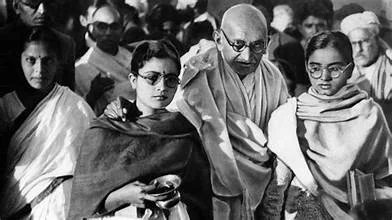The demise of Mahatma Gandhi, a towering figure in India’s history, remains a subject that echoes through time. Nathuram Godse’s fatal act of assassinating Gandhi has perennially gripped the conscience of the nation. Understanding the motivations behind this pivotal event necessitates a meticulous examination of historical, socio-political, and ideological contexts.
Historical Context: Gandhi’s Ideology and Actions
Gandhi’s philosophy of non-violence (ahimsa) and civil disobedience propelled India’s freedom struggle. His charismatic leadership and unwavering commitment to peaceful protest against British colonial rule resonated worldwide. However, this peaceful path was not bereft of controversy.
Ideological Disputes and Godse’s Perspective
Nathuram Godse, a fervent activist, held contrasting views to Gandhi’s principles. His dissent stemmed from the belief that Gandhi’s approach towards the partition of India and Pakistan was detrimental to Hindu interests. Godse perceived Gandhi’s efforts as compromising Hindu rights and favoring appeasement of other communities.
Gandhi and the Issue of Partition
The partition of India in 1947 was a tumultuous event that led to communal violence and widespread displacement. Gandhi’s stance on preserving Hindu-Muslim unity and his advocacy for the payment of Rs 55 crore to Pakistan as a goodwill gesture were fiercely contested by Godse and his associates.
Godse’s Personal Motivations and the Assassination
Godse perceived Gandhi’s actions as jeopardizing India’s future and the interests of Hindus. His ideological differences culminated in the tragic assassination on January 30, 1948. This event forever altered the course of India’s history and ignited debates that persist to this day.
The Aftermath and Legacy
The aftermath of Gandhi’s assassination saw Godse being tried and executed, but the incident left an indelible mark on India’s socio-political landscape. It sparked introspection and fueled discussions about the ideologies that clashed on that fateful day.
A Legacy of Contrasting Ideals
The assassination of Mahatma Gandhi by Nathuram Godse remains a complex and contentious chapter in India’s history. It signifies a clash between ideologies, where the advocate of non-violence was met with the ultimate act of violence, leaving a legacy of ideological divergence.









